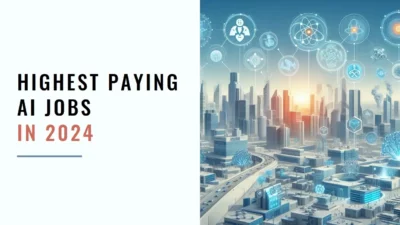
The 90 essential nutrients list includes 60 minerals, 12 amino acids, 16 vitamins and 2 fatty acids, each essential nutrient is named here. Essential nutrients are those key substances that the human body cannot produce in sufficient quantities or at all. So these vital nutrients must be obtained from the diet to support normal physiological functions, growth, and overall health.
These vital nutrients are essential because they play crucial roles in various bodily processes and are necessary for the body to function properly.
90 Essential Nutrients List
Essential Minerals
- Calcium,
- Magnesium,
- Phosphorus,
- Potassium,
- Sodium,
- Chloride,
- Sulfur,
- Cobalt,
- Copper,
- Aluminum,
- Arsenic,
- Barium,
- Beryllium,
- Boron,
- Bromine,
- Carbon,
- Iodine,
- Iron,
- Manganese,
- Selenium,
- Zinc,
- Cerium,
- Cesium,
- Chromium,
- Dysprosium,
- Erbium,
- Europium,
- Gadolinium,
- Gallium,
- Germanium,
- Gold,
- Hafnium,
- Holmium,
- Hydrogen,
- Lanthanum,
- Lithium,
- Lutetium,
- Molybdenum,
- Neodymium,
- Nickel,
- Niobium,
- Nitrogen,
- Oxygen,
- Praseodymium,
- Rhenium,
- Rubidium,
- Samarium,
- Scandium,
- Silica,
- Silver,
- Strontium,
- Tantalum,
- Terbium,
- Thulium,
- Tin,
- Titanium,
- Vanadium,
- Ytterbium,
- Yttrium,
- Zirconium
Essential Vitamins
- Vitamin A,
- Vitamin B1,
- Vitamin B2,
- Vitamin B3,
- Vitamin B5,
- Vitamin B6,
- Vitamin B12,
- Vitamin C,
- Vitamin D,
- Vitamin E,
- Vitamin K,
- Biotin,
- Choline,
- Flavonoids (Bioflavonoids),
- Folic Acid,
- Inositol
Essential Amino Acids
- Valine,
- Lysine,
- Threonine,
- Leucine,
- Isoleucine,
- Tryptophan,
- Phenylalanine,
- Methionine,
- Histidine,
- Arginine,
- Taurine,
- Tyrosine
Essential Fatty Acids
- Omega 3,
- Omega 6 and Omega 9
Types of Essential Nutrients Vital for Body
There are two main categories of essential nutrients: essential macronutrients and essential micronutrients which are vital for human body.
Essential Macronutrients
- Carbohydrates: Provide the primary source of energy for the body. They are broken down into glucose and used as fuel for cells.
- Proteins: Necessary for the growth, repair, and maintenance of body tissues. Proteins are composed of essential amino acids that the body cannot synthesize on its own.
- Fats: Important for energy storage, hormone production, and the absorption of fat-soluble vitamins. Essential fatty acids, like omega-3 and omega-6, are required for certain bodily functions.
Essential Micronutrients
- Vitamins: Organic compounds that are essential for various biochemical reactions in the body. They support metabolism, immune function, and other critical processes. Examples include vitamin C, vitamin A, and vitamin D.
- Minerals: Inorganic elements that play vital roles in bodily functions, such as bone health, nerve function, and fluid balance. Some essential minerals include iron, calcium, zinc, and potassium.
There are six major basic nutrients – water, carbohydrates, protein, fat, vitamins, and minerals. Each plays a unique and important role in how our bodies function. However, other essential nutrients are also required for proper body functions. Essential nutrients are required in different amounts depending on age, sex, life stage, and individual needs. Additionally, some vital nutrients may become conditionally essential under certain circumstances, such as during illness or specific health conditions.
Vital Nutrients and their Key Role in Human Body
Here are some examples of specific vital nutrients and their key roles for body:-
- Vitamin C: Supports the immune system and acts as an antioxidant.
- Iron: Needed for oxygen transport in the blood and various enzymatic reactions.
- Calcium: Essential for bone health and muscle function.
- B vitamins (e.g., B1, B2, B12): Aid in energy metabolism and nerve function.
- Omega-3 fatty acids: Support brain function, reduce inflammation, and promote heart health.
A balanced diet that includes a variety of nutrient-rich foods is crucial for maintaining good health and preventing nutrient deficiencies or related health conditions. Maintaining a balanced diet that includes a variety of nutrient-rich foods is essential to ensure adequate intake of these essential nutrients.
Nutrient deficiencies can lead to a range of health problems and may affect growth, development, and overall well-being. If you have specific dietary concerns or health conditions, it’s best to consult with a healthcare professional or a registered dietitian to develop a personalized nutrition plan.










